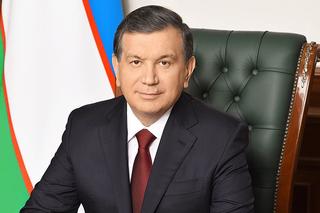Uzbekistan’s President has signed a decree on the liberalization of monetary policy, allowing its citizens and companies to buy foreign currency without restrictions at a market-set rate from September 5, as reported in Gazeta.uz newspaper.
This move would be a potentially decisive step on the path towards full convertibility of the country’s sum currency. That would help open up Central Asia’s second-biggest economy to badly needed foreign investment.
Uzbek citizens will now be able to sell foreign currency and purchase it for abroad use without restrictions.

Shavkat Mirziyoyev
President Shavkat Mirziyoyev’s decree has been made on September 2. The President’s website was temporarily unavailable after the publication of the news due to the heavy workload.
Entrepreneurs without a legal entity, as well as farms with foreign currency incomes, will be able to withdraw cash foreign currency from their bank accounts.
The decree recognizes that “excessive administrative regulation in the sphere of currency circulation unjustifiably created an inefficient system of privileges and preferences for individual industries and business entities, led to unequal business conditions and violations of market competition principles, became a retarding factor for attracting foreign investment, increasing exports of goods and services, in general economic development of the country.”
“Ensuring the full rights of legal entities and individuals to freely acquire and sell foreign currency and dispose of their own foreign currency at their own discretion” is mentioned as one of the main priorities of state economic policy in the field of liberalization of the foreign exchange market.
The government was instructed in a week’s time to develop draft decisions to mitigate the effects of monetary policy liberalization, including measures to ensure financial stability of the banking system, financial support for basic industries, optimize rates of customs payments, and strengthen state support for socially vulnerable segments of the population.
